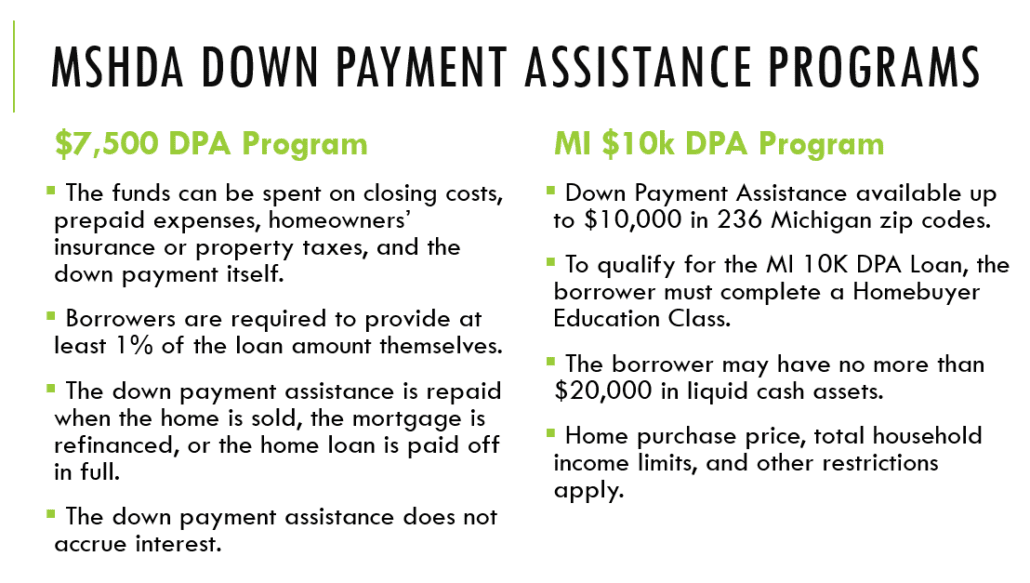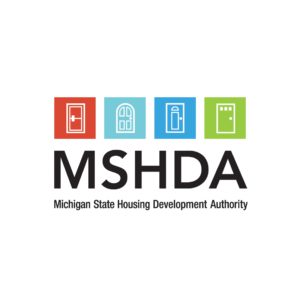What are the benefits of homeownership?
Owning a home is a quintessential part of the American dream. Homes give families a sense of security and belonging. Homes are where holidays are celebrated and memories are made.
Homeownership has a variety of practical benefits, too:
 Building equity: As you make mortgage payments, you build equity in your home, which is the difference between your home’s market value and how much you owe on your mortgage. As your equity grows, you can borrow against it or use it to secure a second mortgage.
Building equity: As you make mortgage payments, you build equity in your home, which is the difference between your home’s market value and how much you owe on your mortgage. As your equity grows, you can borrow against it or use it to secure a second mortgage.- Tax advantages: Homeowners may be able to deduct mortgage interest and property taxes from their federal income taxes. This can result in significant savings over the life of the loan.
- Appreciation: Over time, the value of your home may appreciate, or increase in value. This can provide a significant financial benefit if you decide to sell your home in the future.
- Forced savings: Making a mortgage payment each month is a form of forced savings, because you are paying into an asset that you own.
- Stability and community: Owning a home can provide a sense of stability and a sense of belonging to a community. You can make your house a home, and you have the freedom to decorate and make changes as you wish.
- Investment: Owning a home can also be considered as an investment that can appreciate in value over time. It’s one of the most common way of investment on real-estate.
Your Home Can Help You Build Equity
Equity is the value of the property that you own outright. Building equity in a home means increasing the amount of the property that you own outright. When you first purchase a home, the majority of your mortgage payments will go towards paying off interest on the loan, with only a small portion going towards paying off the principal balance. Over time, as you make mortgage payments, you will pay off more and more of the principal balance, which will increase your equity in the home.
Another way to build equity in a home is through property appreciation. If the value of the home increases, your equity will also increase, even if you haven’t made extra payments towards the principal balance. Additionally, making improvements to the home, such as renovations or adding square footage, can also increase the home’s value and your equity in it.
It’s important to note that building equity in a home also means that you are building an asset for yourself. You may be able to borrow against the equity in your home to make other investments or to use it as collateral for a loan. Also, when you sell a home, the equity can be a source of funds, either to buy another home or to use for other financial goals.
It is also worth noting that if you have an adjustable rate mortgage, or ARM, your payments may change over time, and it may take longer to build equity in your home. Furthermore, if the housing market is declining, it may be more difficult to build equity and even your home value may decrease.
Your Home May Provide Tax Savings
There are several tax advantages to owning a home, including deductions for mortgage interest and property taxes.
- Mortgage Interest Deduction: The interest paid on your mortgage is tax-deductible, up to certain limits. The limits change periodically and it’s good to check the updated limit based on the Tax reform laws, but for tax year 2021, the mortgage interest deduction limit for a primary residence is $750,000 for mortgages taken out after December 15, 2017, or $1,000,000 for mortgages taken out before December 15, 2017. If you have a second home or rental property, the interest on those mortgages is also tax-deductible, but the limit is $750,000.
- Property Tax Deduction: You can also deduct the property taxes you pay on your primary residence or a second home. The limit for property tax deduction is $10,000. Keep in mind that if you are in a high-tax state, it’s more likely to reach this limit, and thus more of your property tax will be tax-deductible.
- Capital Gain Exclusion: When you sell your primary residence, the profits made from the sale are generally tax-free, up to a certain limit. For tax year 2021, the limit is $250,000 for single filers and $500,000 for married couples filing jointly. This means that if you sell your home and make a profit, as long as the profit is below the limit, you won’t have to pay taxes on it.
- Points Deduction: If you paid “points” or “loan origination fees” to get your mortgage, you may be able to deduct these fees on your tax return.
It is important to keep in mind that these are the general tax benefits, but it’s always best to check with a tax expert or consult IRS website to get the most up-to-date information, and to understand how they may apply to your specific tax situation.
Your Home Might Appreciate in Value
The rate at which a house will appreciate in value can vary greatly depending on a number of factors, such as the housing market, location, and condition of the property.
In general, the national average rate of home appreciation over the past century has been around 3% per year. However, this rate can vary significantly depending on the location and the local housing market.
In some areas of the country, such as in large cities or high-demand areas, homes have appreciated at rates much higher than the national average, sometimes as much as 10% or more per year. In other areas, especially those where the housing market is weak, homes may appreciate at a rate that is lower than the national average, or may even decline in value.
In addition, you should keep in mind that the appreciation of a house is not guaranteed, it can fluctuate depending on the market conditions. As an example, during an economic recession, the housing market may decline, resulting in a decrease of home values, or in some cases, even a negative appreciation.
Your Home Can Serve as an Investment
A home can be considered an investment for a few reasons:
- Appreciation: As mentioned earlier, over time, the value of a home can appreciate, which means the home may be worth more in the future than what you paid for it. This appreciation can be considered a return on investment.
- Forced savings: Making a mortgage payment each month is a type of forced savings. The money you are spending on your mortgage payments is helping you to pay off an asset, as well as build equity.
- Tax benefits: As I’ve also mentioned, the mortgage interest and property taxes are both tax-deductible which can provide a significant tax savings for homeowners, which in turn can increase the return on investment.
- Rental income: If you own a home, you may be able to rent out a portion of it or the entire property, this can provide additional income.
- Future use: A home can also be considered an investment because it can be used for future financial gain, such as being able to sell it for a profit, or using it as collateral for a loan.
It’s worth noting that like any investment, homeownership has its own set of risks and uncertainty. Market conditions, interest rates, and other factors can affect the value of a home, and there’s no guarantee that a home’s value will appreciate. Therefore, it’s always good to do your own research and consult with professionals before making a decision.
If you need help with the mortgage process, give us a call!



 Checks and balances – that’s what it’s all about. Lenders require appraisals to ensure their clients are not overpaying (or overborrowing) for a home.
Checks and balances – that’s what it’s all about. Lenders require appraisals to ensure their clients are not overpaying (or overborrowing) for a home.

 A mortgage is a loan, and like other bank loans, it comes with an interest rate – it’s how lenders make enough money to stay in business. This is usually a percentage of the loan amount, and you pay it off alongside the
A mortgage is a loan, and like other bank loans, it comes with an interest rate – it’s how lenders make enough money to stay in business. This is usually a percentage of the loan amount, and you pay it off alongside the 

 Let’s assume a home is being sold for $300,000 and the buyer is putting 5% down. To attract more buyers, the seller has agreed to pay $6,100 toward a 2-1 Buydown. If the current market rate is 5.5% then the buyer’s payment for the first 12 months would be at 3.5% or $1,279/month. For the second year, the payment would be based on a rate of 4.5% or $1,444/month. Starting in the third year, the buyer’s payment would be at 5.5% for the remaining 28 years or $1,618/month.
Let’s assume a home is being sold for $300,000 and the buyer is putting 5% down. To attract more buyers, the seller has agreed to pay $6,100 toward a 2-1 Buydown. If the current market rate is 5.5% then the buyer’s payment for the first 12 months would be at 3.5% or $1,279/month. For the second year, the payment would be based on a rate of 4.5% or $1,444/month. Starting in the third year, the buyer’s payment would be at 5.5% for the remaining 28 years or $1,618/month.
 Maybe you love heading Up North every weekend and want your own place on the bay (which bay is up to you). Or perhaps you want to retire to a beach in Florida and want to buy your home now and rent it out to make some money until then. Either way, you’re thinking about buying a second home – and that’s a bit different than buying your first home or any other primary residence you’ve had. In this article, we’ll tell you why.
Maybe you love heading Up North every weekend and want your own place on the bay (which bay is up to you). Or perhaps you want to retire to a beach in Florida and want to buy your home now and rent it out to make some money until then. Either way, you’re thinking about buying a second home – and that’s a bit different than buying your first home or any other primary residence you’ve had. In this article, we’ll tell you why.


 In the past, Reverse Mortgages were viewed in a negative light. That’s changing! There are many benefits to a Reverse Mortgage that consumers are unaware of.
In the past, Reverse Mortgages were viewed in a negative light. That’s changing! There are many benefits to a Reverse Mortgage that consumers are unaware of.
 The U.S. Department of the Treasury notified MSHDA on April 14, 2021, that it will allocate $242,812,277 to the State of Michigan. This number was based on unemployed individuals and the number of mortgagors with delinquent mortgage payments.”
The U.S. Department of the Treasury notified MSHDA on April 14, 2021, that it will allocate $242,812,277 to the State of Michigan. This number was based on unemployed individuals and the number of mortgagors with delinquent mortgage payments.”